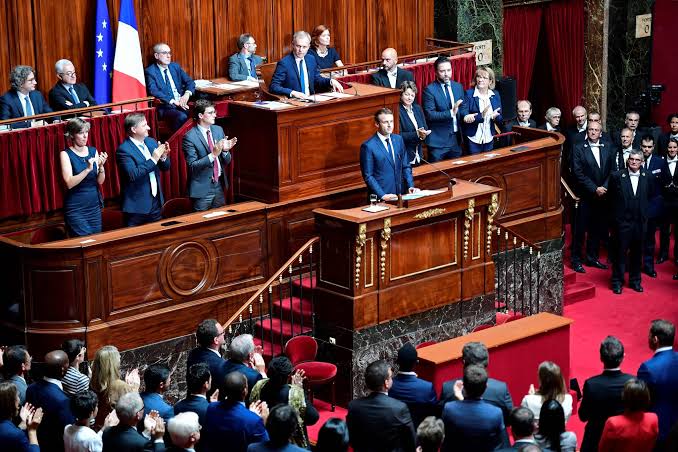France in Political Freefall as Bayrou Becomes Latest Prime Minister to be Sacked
Share
With his second term, France President Emmanuel Macron has five unstable majority parties in office, who resort to Sebastian Lecornu.
France has gone into uncharted political turmoil, and President Emmanuel Macron has already gone through his sixth prime minister in a little more than a year.
The government is in almost permanent crisis as a result of a fractured parliament, unpopular austerity policies and a series of bruising no-confidence votes.
From Borne to Attal ;her Government Under Pressure, President Macron forced her out as Elisabeth Borne failed to find a path to deal with a hung parliament, unpopular reforms and lacked support in parliament, with her successor Gabriel Attal only remaining a little less than nine months, before he too was forced out as the president refocused his government before new coalition discussions.
Barnier’s 99 Days in Office
Michel Barnier, a long-time politician was given the job in September 2024. Barnier however failed to last long in government despite having one of the shortest premierships in the Fifth Republic with failed 99 days of office. Left and far-right MPs united to vote on a no-confidence, which left Macron in an outburst. Right and left had joined forces in what I call an anti-Republican line, and Macron raved, telling critics that they preferred anarchy to order. He however promised, “the command thou hast given me is of five years, and I will wield it to the uttermost. ”
Bayrou’s Austerity Gamble
His successor Barnier was replaced by centrist Francois Bayrou, who based his survival on austerity programme which would cut 44 billion out of the public expenditure.
His proposals such as freezing of welfare, and abolishing two of the public holidays caused an uproar along the political line.
On September 8, 2025, the government of Bayrou is smashed in a vote of no-confidence;350 MPs vote against him, only 190 in his favor.
According to left-wing leader Mathilde Panot,” he received his hour of truth; he got it, and that Bayrou had been savagely beaten.”
Socialist MP Boris Vallaud took it a notch higher when he termed Macron, as a failed president who is poor making the rich rich and turning his back on the future.
Jean-Luc Mlenchon, the longtime leftist radical, urged Macron to step down, saying that his austerity-based presidency could only have a minority of supporters.
President Macron then approached another close ally, whom he had a reputation of being a pragmatist, which is Sebastien Lecornu.
Lecornu soon separated himself as much as possible from the most unpopular proposals of Bayrou, scraping the holiday cuts, and promising to consult.
During the first speech, Lecornu has assured a radical departure of the recent political traditions and practices, emphasizing humility and collaboration with the opposition as the key to the future.
Under whether his lighter touch will work in a still bitterly divided parliament is yet to be determined.
A Crisis Without End?
The frequent change of prime ministers has highlighted the fact that there is a serious rift in the politics of France.
Centrist Macron bloc is caught in between a revived left and a far-right party where he could not manage to create a long-term coalition.
Every effort to enforce fiscal discipline to contain the growing debt in France has crashed on parliamentary opposition.
Temporarily at least, Sebastien Lecornu has to make the effort of what all his predecessors have failed in; to pass a budget, to appease popular indignation, and to keep divided parliament together.
His failure or success will not be just to him but also to the presidency of Macron.

Members of Parliament and prime ministers attending a session at the parliament
PHOTO/COURTESY/X
